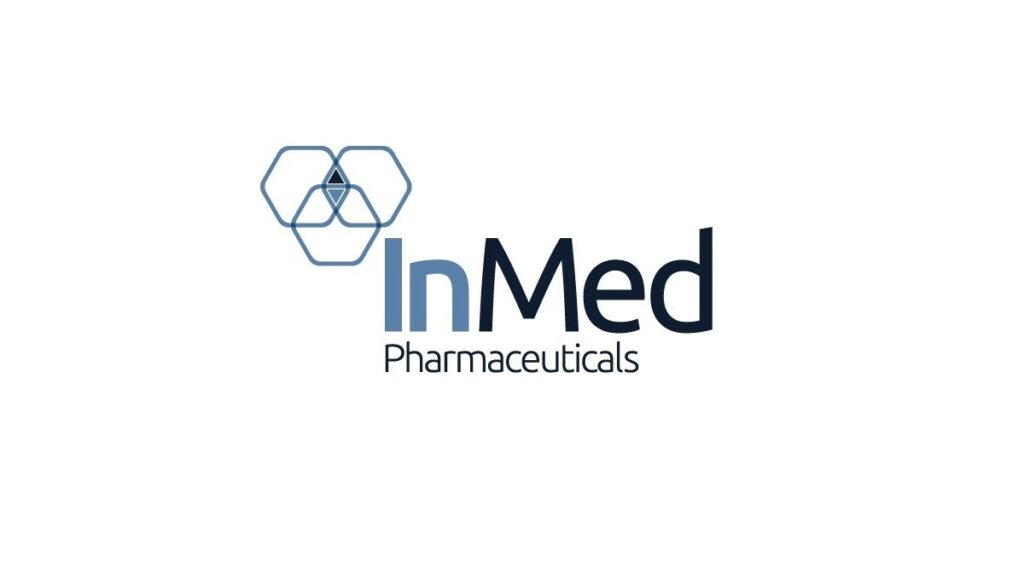VANCOUVER, British Columbia – InMed Pharmaceuticals Inc. (“InMed” or the “Company”) (NASDAQ: INM) (TSX: IN), a clinical-stage pharmaceutical company developing medications targeting diseases with high unmet medical need and leading the way in the clinical development of cannabinol (“CBN”), today announced top-line results from its 755-101-HV Phase 1 clinical trial (“Study 101”).
Results of Study 101 indicate that INM-755 was safe and well-tolerated on intact skin, caused no systemic or serious adverse effects, and there were no subject withdrawals due to adverse events. Drug concentrations in the blood were very low, as expected.
Study 101 was a randomized, vehicle-controlled, double-blind, Phase 1 trial, that examined the safety and tolerability of two strengths of INM-755 cream on intact skin in 22 healthy adult volunteers over a 14-day treatment period.
Study 101 compared two strengths of INM-755 cream with a vehicle (cream base without CBN) under treatment procedures designed to create intense conditions for assessing skin irritation potential. The entire upper back of each subject, representing 5% body surface area (“BSA”), had cream applied and was then covered with a film dressing (bandage). This application was repeated daily, resulting in continuous exposure to the cream and the dressing for 14 days. These treatment conditions simulate what occurs for some EB patients who have large areas of skin covered with such a dressing daily.
Local tolerability was assessed daily in a standardized way for erythema (redness), edema (fluid accumulation/swelling), scaling (flaking skin), and stinging/burning. These assessments were made by trained clinic personnel who were blinded as to which treatment the patient was assigned (active versus vehicle only).
Comparison of the active and vehicle treatment groups demonstrated a slightly higher incidence and intensity of erythema and scaling in the INM-755 groups. These effects were not dose-dependent, with both the high and low-concentration INM-755 groups showing similar results.
The majority of subjects in all groups had no events for the four monitored local tolerability parameters on most days over the treatment period. Local reactions that did occur were mostly mild or moderate and resolved without intervention. The occurrence of mild erythema and stinging/burning in some subjects from the vehicle group suggests that the administered vehicle and/or the film dressing may have contributed to observed local reactions across all study groups. Contact dermatitis is commonly seen with film dressings like those used in this study and by EB patients.
A very low amount of drug was measured in the blood of subjects who received the high-concentration INM-755 cream. CBN levels were too low to be measured in most subjects in the low-concentration INM-755 group. No systemic adverse effects were caused by INM-755 exposure in this study. Systemic safety was evaluated by standard procedures that included reporting adverse events, use of concomitant medications, findings from physical examinations, electrocardiograms, measurements of vital signs, and the full set of hematology, chemistry, and urinalysis laboratory parameters.
Additionally, Study 101 assessed subject-reported outcomes for alertness, calmness, and mood using the Bond-Lader Visual Analogue Scale, and internal perception, external perception, and “feeling high” using the Bowdle Visual Analogue Scale. Treatment of 5% BSA daily for 14 days with INM-755 cream did not cause any effects on these subject-reported feelings.
In summary, these results demonstrate an acceptable local safety profile of treating intact skin in healthy volunteers and indicate only low-level systemic exposure from topical administration which did not lead to any systemic adverse effects. Study 101 is the first of two Phase 1 clinical trials conducted in healthy volunteers. The second, 755-102-HV Phase 1 trial (“Study 102”), which recently completed subject treatment, is investigating the effect of INM-755 cream on small epidermal wounds. The Company anticipates reporting the results from Study 102 in early first quarter of calendar 2021.
About InMed Pharmaceuticals
InMed Pharmaceuticals is a clinical-stage pharmaceutical company developing a pipeline of cannabinoid-based medications, initially focused on the therapeutic benefits of cannabinol (CBN) in diseases with high unmet medical need. The Company is dedicated to delivering new therapeutic alternatives to patients that may benefit from cannabinoid-based medicines. For more information, visit www.inmedpharma.com.
About INM-755
INM-755 is a CBN cream intended as a topical therapy to treat epidermolysis bullosa (EB) and potentially other dermatological diseases. Preclinical data demonstrate that INM-755 may help relieve hallmark EB symptoms, such as inflammation and pain, as well potentially restore the integrity of the skin in a subset of EB Simplex patients.
About Epidermolysis Bullosa (EB)
EB is the collective name of a group of genetic disorders of characterized by fragile skin and mucous membranes that are easily damaged, leading to extensive blistering and wounding. The blisters may appear in response to minor injury, even from heat, rubbing, scratching or adhesive tape. The disease has no approved cure and most current treatments are directed towards symptomatic relief.

